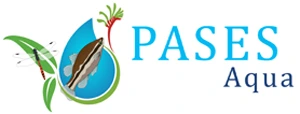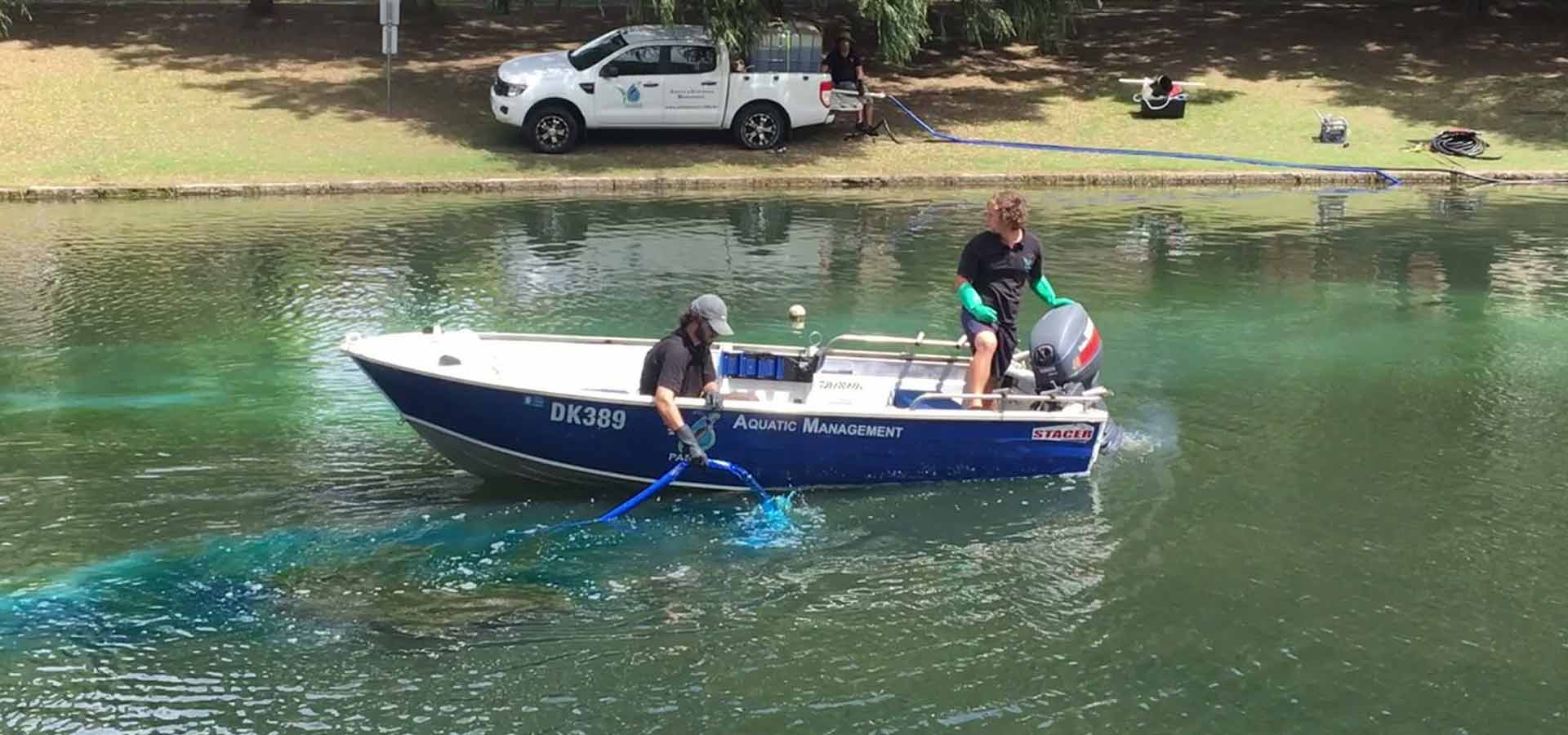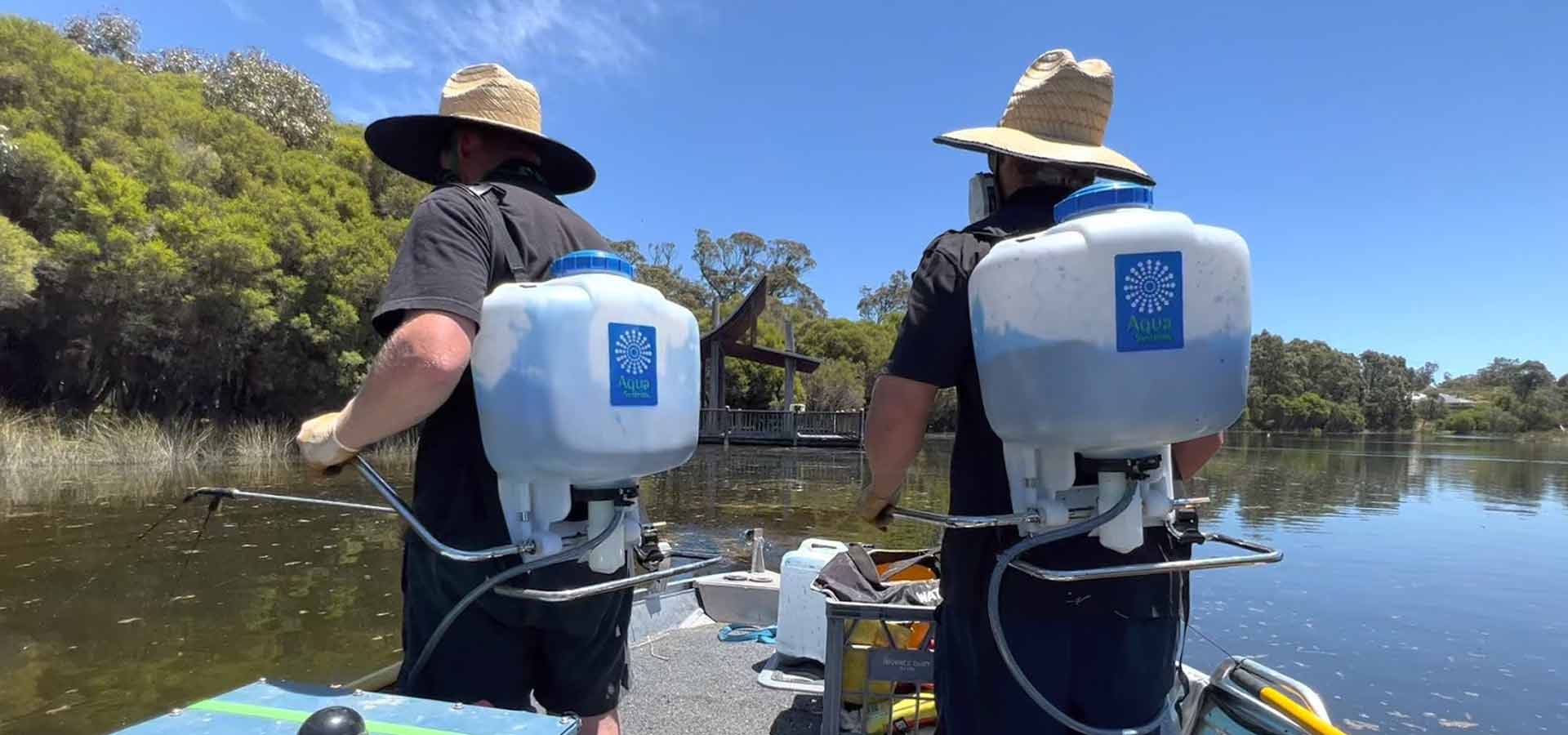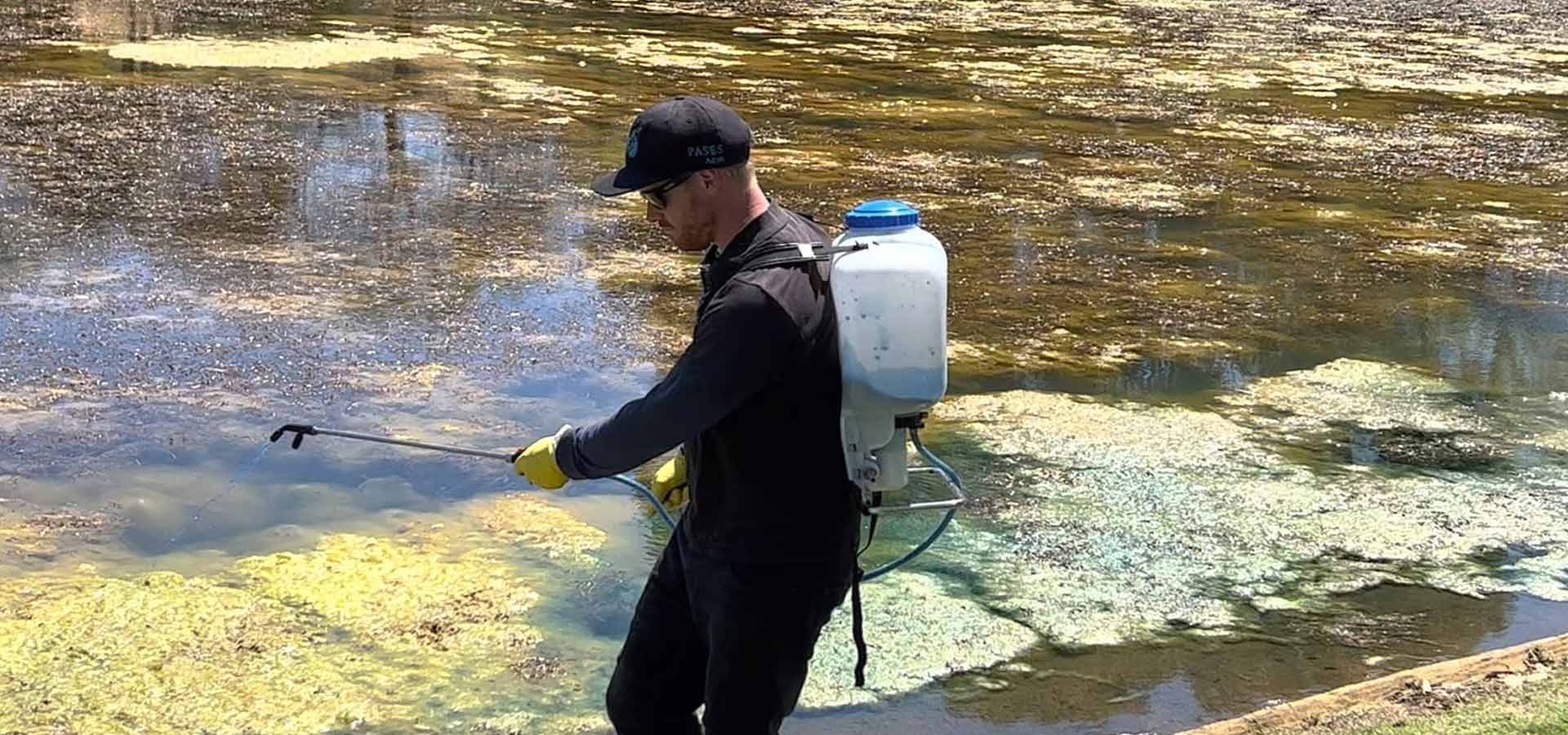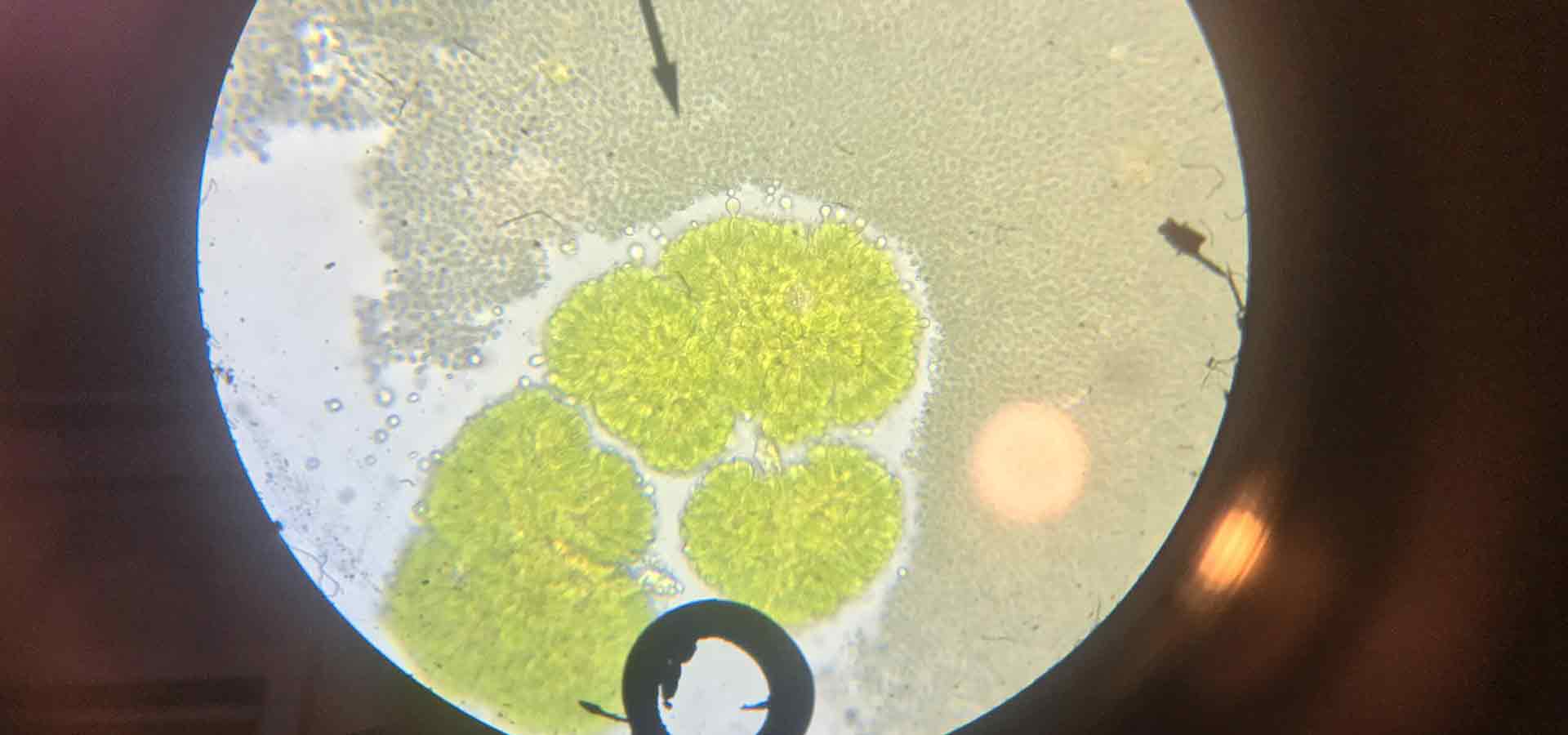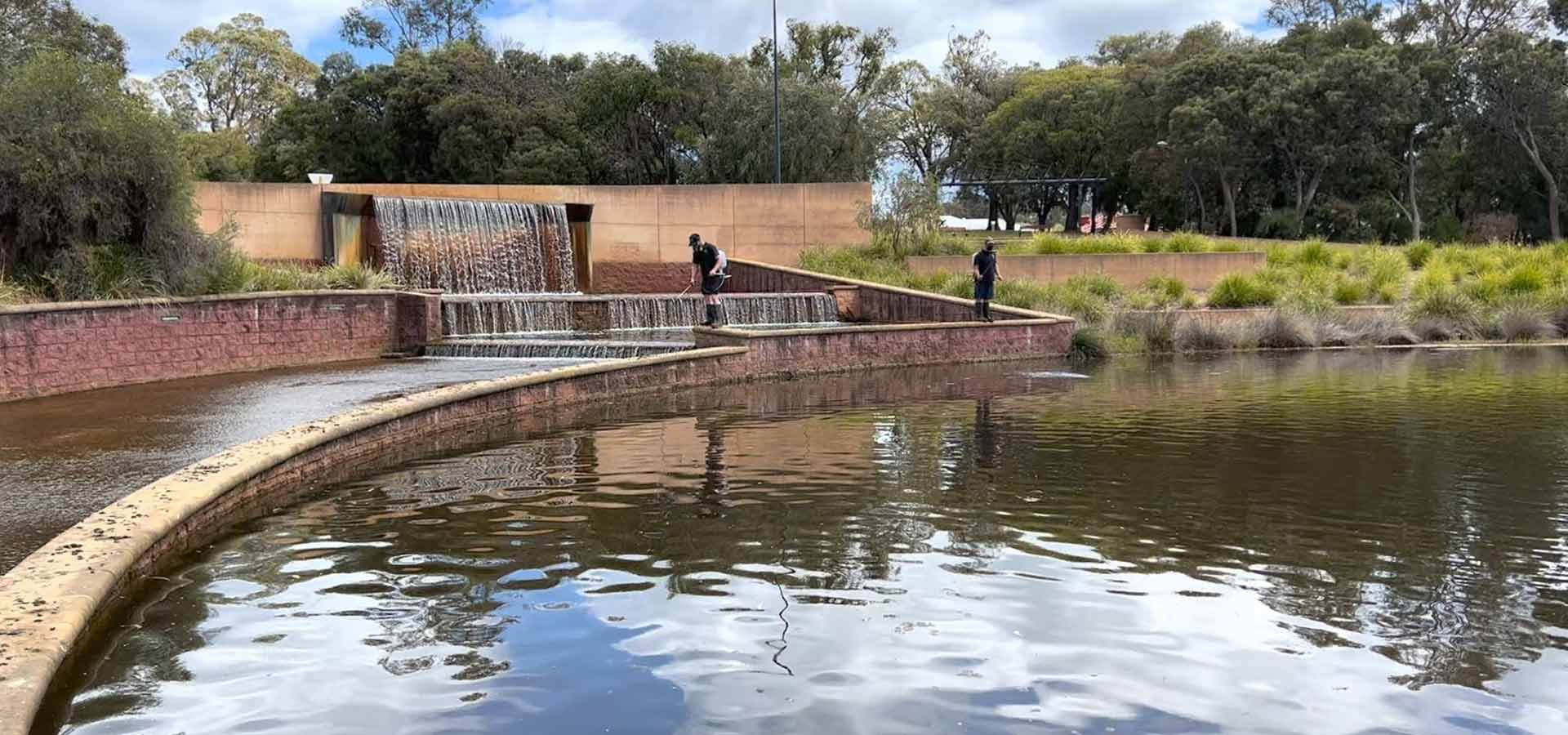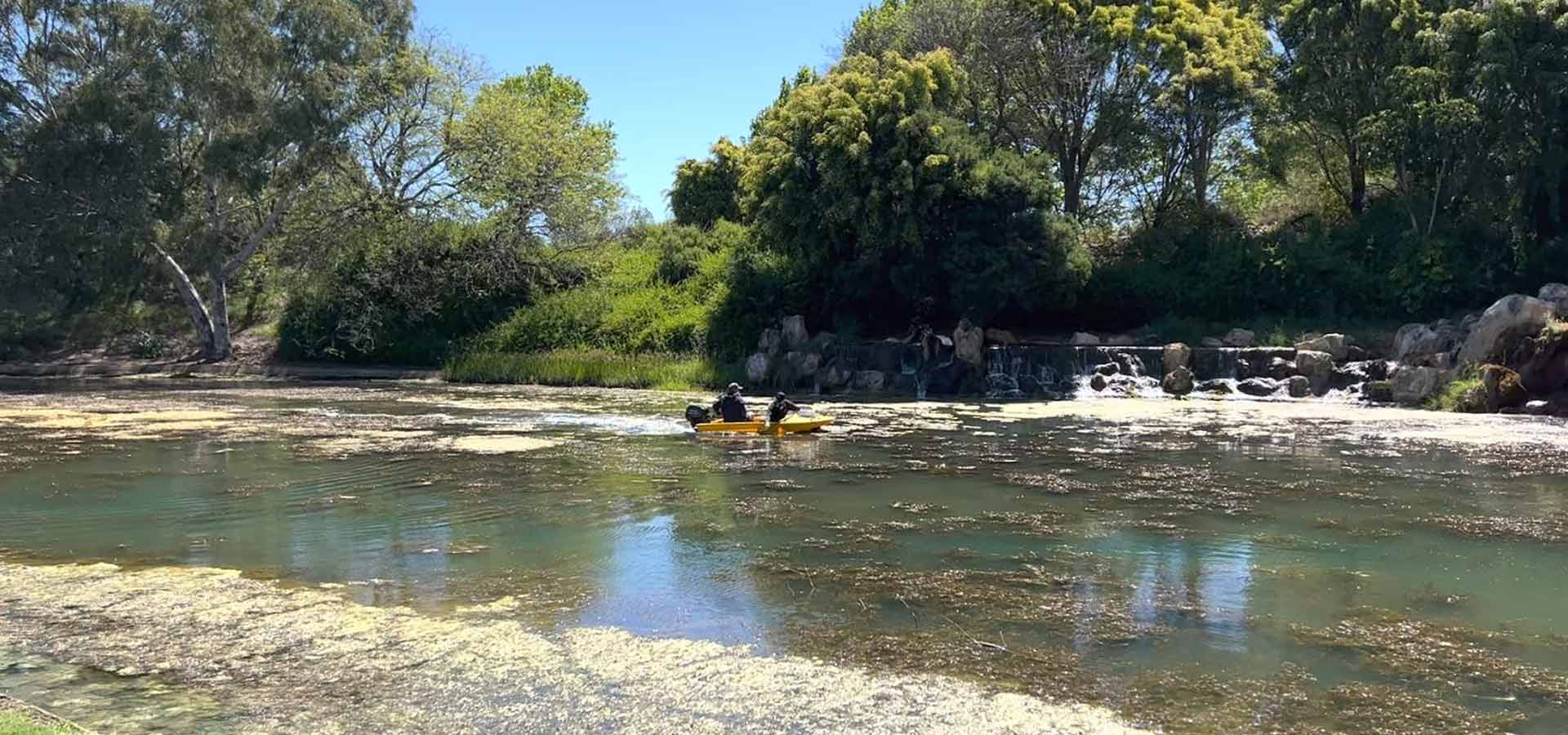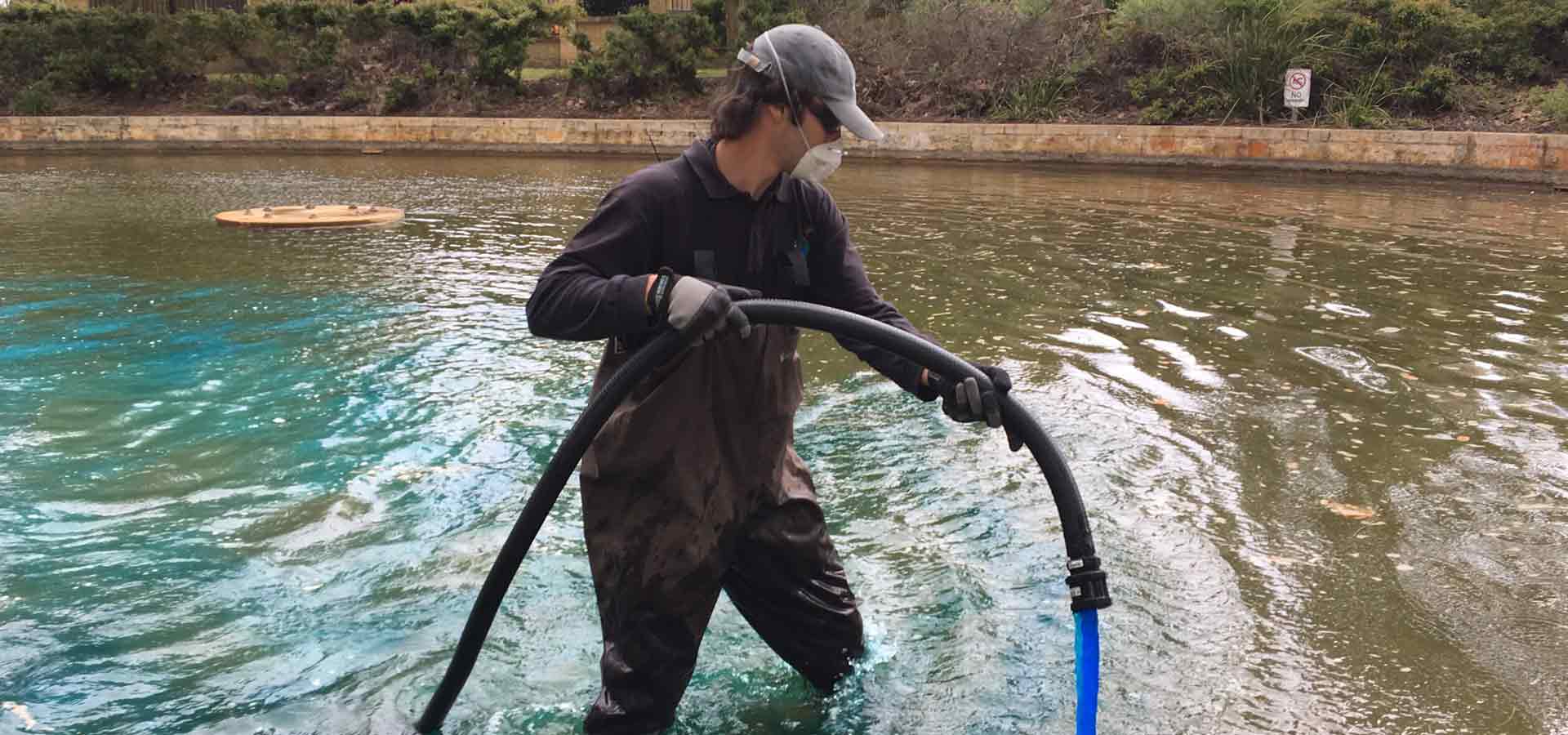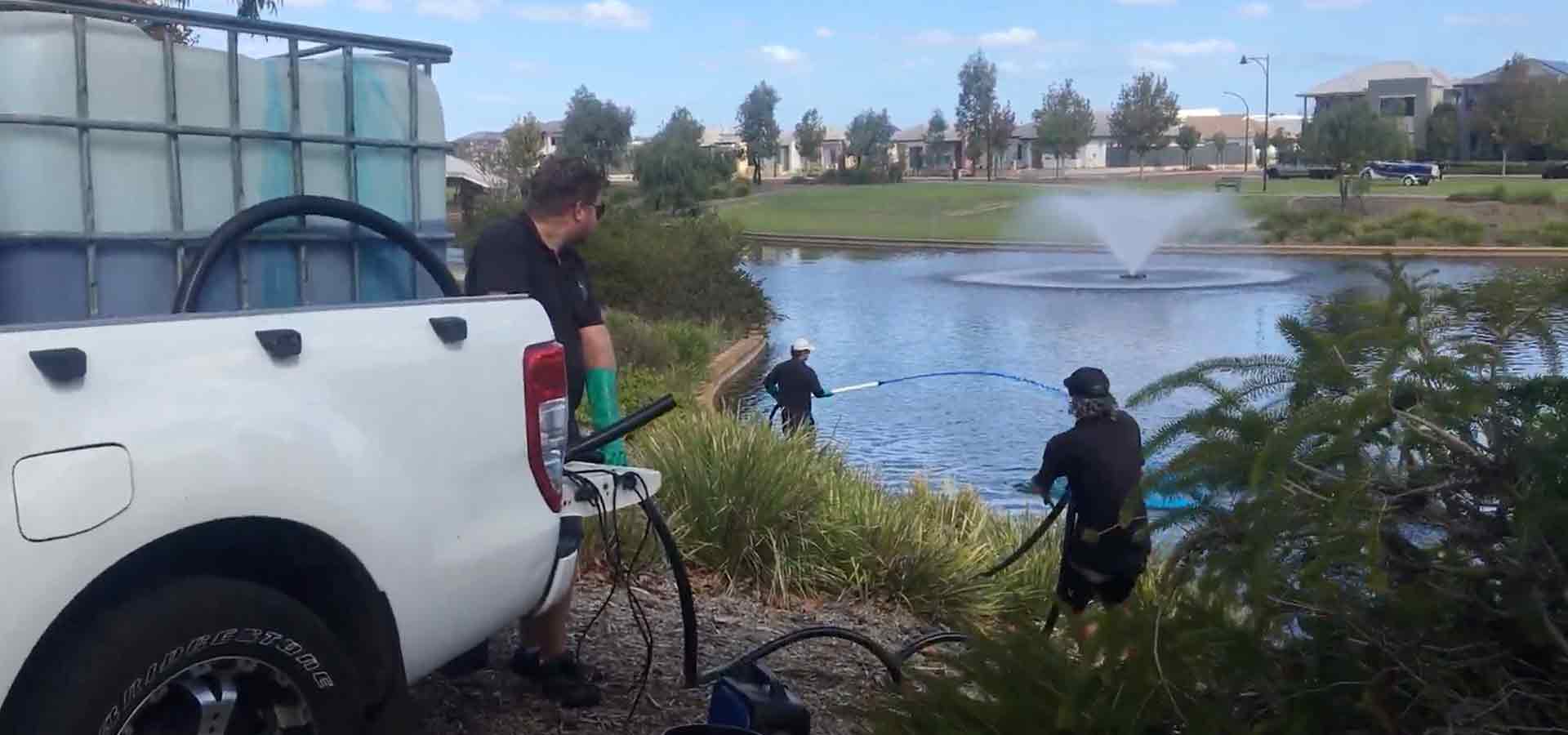PASES Aqua Pty Ltd can monitor and evaluate the impacts of eutrophication and algal blooms on wetlands and recommend and implement a remediation plan to restore the site to its predisturbed condition. Our staff have formal chemical spraying certificates
“Eutrophication” occurs when there is an accumulation and overabundance of nutrients in the aquatic system, commonly due to fertilizer runoff or natural aging and accumulation of sediment. The overabundance of nutrients fuels algal blooms which may have detrimental impacts to the inhabitants within the system and become visually unpleasant to the public.
In systems with high algal biomass, subsurface algae can struggle to receive enough light to photosynthesize. When this occurs, the oxygen produced by algal photosynthesis does not offset the oxygen consumed by algal respiration leading to low dissolved oxygen levels and resulting in aquatic fauna deaths.
Certain types of blue green algae/cyanobacteria also release toxins which are poisonous at low concentrations. Other impacts of eutrophication and algal blooms include:
- Reductions in water quality for aquatic fauna – long periods of low to high ammonia, nitrite and nitrate levels cause stress and damage to gills and other tissues of aquatic animals, even in small amounts. This also reduces the immune system of aquatic fauna which then become more susceptible to parasitic and bacterial infections and result in poor growth and larval recruitment
- Species diversity decreases overall
- Increase in rooted plants (i.e. reeds)
- Increase in turbidity and a reduction in water clarity/visibility
- Increase in rate of sedimentation, shortening the lifespan of the lake
- Development of anoxic conditions
PASES Aqua Pty Ltd can undertake scientific water quality monitoring and algae identification (using microscope and field keys) on-site and prescribe and install the best solution/s for your eutrophication or algae issue, which can include:
- Revegetation – fringing riparian vegetation plays an important role in nutrient buffering, bank stabilization and sediment trapping
- Lake bed aeration systems or aerating fountains – increasing dissolved oxygen improves beneficial bacterial activity and hence speeds up denitrification
- Bioremediation - the use of either naturally occurring or deliberately introduced microorganisms to consume and break down of nutrients, in order to clean a polluted site;
- Addition of enzymes that catalyze indigenous bacteria to speed up the rate of nitrification and denitrification processes
- Biological Control – Use of specific fauna species to predate on targeted algae species
- Chemical Control – Flocculants, Algaecides etc
- Bio filtration and sterilization systems
Frequently asked questions
Leave it to us! Simply contact us to book an on-site consult or email photos to admin@pases.com.au so we can positively identify the algae species present and provide targeted treatment options.
Most algaecides we use to combat algal blooms is completely fish safe when used correctly! However, like most treatments, it does deplete oxygen levels which can lead to fish suffocation. Aeration is best while treating with fish.
Some algaecides cannot be used with livestock. However, Coptrol can be sprayed, dripped or applied directly onto livestock drinking water storage’s and troughs. It is approved by the Australian pesticides and veterinary medicine authority (APVMA) when used in accordance with label directions.
Some of our algaecides are approved by the APVMA (Australian Pesticides and Veterinary Medicines Authority) for application in potable water storage’s and water tanks (water suitable for drinking / human consumption) reg no. 31030. They can be sprayed, dripped or applied directly onto drinking water storage’s and waterways to treat blue green algae.
They are safe to be used in human drinking water storage’s and tanks. When used as accordance by the labelled directions.
Our cyanobacteria/ blue green algae treatment can be.
When it is used according to the label directions, it is safe to irrigate rice crops, general crops, hydroponic plants, turf, pastures and golf greens with irrigation water treated..
It will not harm rice, hydroponic plants, turf, pastures and golf greens
Related services
We have the drive, the passion, and the knowledge to help you. We employ the right people with a strong background in fish, and/or qualifications in Biology or Aquaculture and/or related fields
